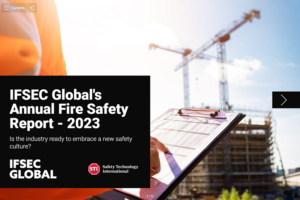The government has announced its intention to extend the use of Primary Authority Schemes (PAS) to fire safety from April 6, 2014, within England and Wales. This, it says, will benefit both businesses and fire and rescue services.
What is a Primary Authority Scheme (PAS)?
These schemes have been around for a while in among health and safety, trading standards, and other local authority enforcement functions. There are currently more than 600 businesses participating in these schemes across 100 local authorities.
A PAS is designed for organisations with premises within, or that operate across, more than one local authority area. A “lead authority” is set up whereby one local authority sets the tone of the enforcement strategy and provides consistent advice to be applied across all of the businesses’ locations.
Under the PAS, the organisation sets up a formal agreement with a lead authority, generally the one where its head office is located. Under the agreement the business typically commits to certain policies and arrangements, its own in-house inspection and auditing programme, and an improvement plan.
The authority, for its part, sets out an inspection plan to cover its intended proactive work with the organisation over a designated period. If inspectors from non-lead authorities visit one of the businesses’ locations they must liaise with the lead authority before taking formal action.
In practice both sides have encountered certain challenges through the schemes. Inspectors, for example, report that they cannot achieve simple improvements locally without jumping through hoops. Businesses on the other hand have complained that non-lead authorities often ignore the agreement.
Tightening up
Section 68 of the Enterprise and Regulatory Reform Act 2013, which came into force in October 2013, gave a statutory footing to inspection plans formed under these agreements, meaning that non-lead authorities potentially cannot even inspect premises without consent from the lead authority (except in an emergency). Section 67 of ERRA also extended the opportunity to form a PAS to trade associations and franchised businesses. In effect, then, if you run a corner shop which is a trade association member, you can benefit from a consistent approach applied by regulators across similar businesses throughout the country, provided that members of the association sign up to written standards of operation.
Is it helpful in the area of fire safety?
In the press release announcing the planned change to offer PASes for fire safety, Business Minister Michael Fallon said: “No enterprise should be held back by confusing or contradictory advice from regulators. Primary Authority is designed to make sure that hard-pressed businesses know what’s expected of them under the law — and receive clear guidance on how to maintain the highest safety standards.”
But I wonder whether contradictory advice is all that common with fire safety issues? (What do our readers find?). The British Retail Consortium has supported the initiative, so maybe it’s a bigger problem than I perceive?
On the positive side, I suppose that a PAS may drive improvement in fire standards — encouraging businesses to agree a strategy on fire safety in exchange for a planned inspection programme.
Viewed from the other viewpoint it’s another scheme operated under the banner of “reducing the burden of regulation on businesses.” But with so many businesses seemingly untouched by their fire safety responsibilities, do we need initiatives which reduce the pressure to conform? Or should all our efforts go into tackling the evidently low standards of fire safety in certain sectors and the consequent risk to life?
Related posts:
- A Standard for Europe: The Key to Industry Innovation
- Was Fire Service Right Not to Save Mineshaft Woman?
- 10 Most-Read Fire Stories of 2013
2023 Fire Safety eBook – Grab your free copy!
Download the Fire Safety in 2023 eBook, keeping you up to date with the biggest news and prosecution stories from around the industry. Chapters include important updates such as the Fire Safety (England) Regulations 2022 and an overview of the new British Standard for the digital management of fire safety information.
Plus, we explore the growing risks of lithium-ion battery fires and hear from experts in disability evacuation and social housing.
